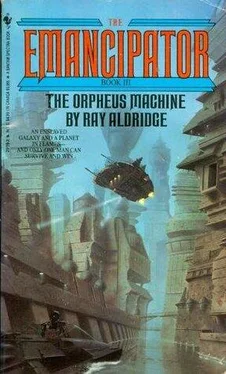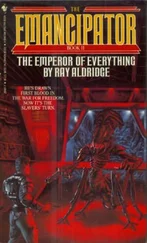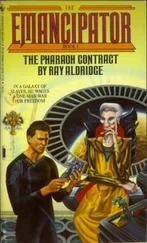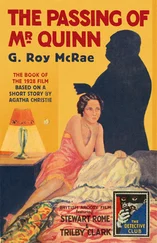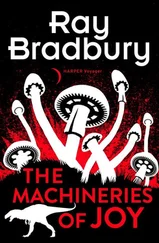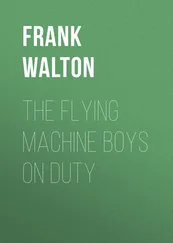“Tidy folk,” he muttered. He drew a deep breath and stood up.
When he stepped out through the curtains, he saw that the beauty of the niche was only a small reflection of the glory outside.
High above, a great rose window filled the ceiling, a design of vast interlocking complexity, rivers of glowing color. It was through this window’s magnificence that the light poured down on a hall filled with concentric circles of thronelike chairs, all facing inward toward a tall central pulpit carved from the twisted white trunk of a dead tree.
He walked forward to admire the nearest of the chairs, a sinuous construction of forged black iron, set with translucent panels of russet agate, accented with pink moonstone cabochons. The small round cushion was of inky purple velvet. He felt that he could almost see its owner’s ghost, a complicated person with a strong supple mind and a stony will, sitting erect and composed.
Ruiz thought it the most interesting chair he had ever seen, until he looked at the next one. The high back was a thin curved shell of laminated wood, a lustrous lavender gray, inlaid with intricate spiraling designs in silver wire. The slender elegant legs seemed to be cast from opalescent glass, and the heavy feet were carved into the semblance of human fists, knuckles down. Ruiz touched the chair, let his fingertips slip across the warm silky texture of the wood and the cool polish of the silver. He closed his eyes, and a fanciful picture filled his mind’s eye: a beautiful woman in silks and jewels, imperious and languid.
Ruiz wandered toward the central pulpit, marveling. Each of the hundreds of chairs was a remarkable object, each showed a dazzling brilliance of craft, each seemed to cloak itself in a distinctive humanity, to announce its owner’s character in an unmistakable voice.
By the time he reached the open space at the hall’s center, his thoughts were cloudy with ghosts. He stood looking up at the pulpit, admiring the way it seemed to soar up into the light of the great rose window.
“We called it the Tree of Knowledge.” The voice was high-pitched but pleasant. “Though actually I think it was a Sook-adapted hawthorn of some sort.”
Ruiz turned to see a person standing in the dark opening at the far side of the hall. At first glance, he seemed a young boy with yellow skin and dark sloe eyes. He wore a white unisuit, and his woolly black hair was cut in fanciful puffs and spires, a sort of cranial topiary. In his left hand he held the right paw of a small doglike creature, which stood, incongruously, on its hind legs.
The boy seemed somehow as unthreatening as any being he had ever met, so Ruiz attempted to make a polite response. “The Tree of Knowledge?”
“Yes,” said the boy as he came toward Ruiz, leading the animal like a child. “We took the name from an Old Earth myth about the origin of curiosity. In that case, some barbarian god got angry with his people for tasting the fruit of the tree. Did nasty stuff to them: kicked their ungrateful curious butts out of paradise and gave them suffering and death.” He laughed softly. “We saw it as an interesting irony. We never thought it would happen to us.”
The boy held out a slender hand in greeting, which Ruiz took without thinking. “By the way,” the boy said, giving Ruiz’s hand a decisive shake and then dropping it, “I’m Somnire, your host. Welcome to all that’s left of the Great Compendium.”
“I’m Ruiz Aw,” Ruiz said, bemused by Somnire’s nonchalance. At closer sight, Somnire seemed older, though his skin was unlined and he moved with the easy grace of youth.
“Yes, I know.” Somnire stepped forward, patted the tree affectionately. “Oh, we had a lot of fine times here, no doubt about that. The dons would relax in their chairs and the stackfolk would pass among us with trays full of goodies and wine. We’d all get drunk and then we’d take turns climbing the Tree of Knowledge — each of us would tell a joke or sing a song. Pretty soon the dons would be rolling around on the floor under their chairs, fornicating joyfully, and the stackfolk would bring coverlets for afterward. There’d be music and dancing and games. Fine times…. “His black eyes went dreamy for a moment, as though he were too full of remembrance to see.
Ruiz felt somewhat confused by these confidences. “I thought this was a library.”
Somnire grinned and gave Ruiz an amused look. “Are the librarians small gray people, juiceless and timid, where you come from? Not so here! We accepted none but the best: comets in the universe of knowledge, great roaring fires of curiosity and ambition.”
“I see,” said Ruiz. He hardly knew how to respond.
Somnire chuckled, a pure melodious sound. He released the animal’s paw and it dropped to all fours, slowly and carefully, as though the movement hurt it. Ruiz saw that the twisted stumps of membranous wings sprouted from its withers. It looked up at him with its doglike eyes, and he saw no more intelligence than he would expect from a dog.
“Run along, Idirin,” said Somnire, making shooing motions at his pet. “We have business to transact.”
It laid its blunt head against Somnire’s leg for a moment, then stumped away stiffly.
Somnire watched the animal go, and a trace of sadness flitted across his childish features. “She’s too attached to me. It’s because she can’t fly with the other sarim. Perhaps I ought to put her ghost to rest, but I’m afraid I’d be too lonely without her.”
Idirin paused and looked back at her master, and then shimmered and disappeared.
Somnire straightened his shoulders abruptly and turned to Ruiz. “So! You’re here to gather data for Roderigo?”
“No,” said Ruiz. “I’m just trying to live a little longer.” He felt he had to defend that ambition, so he went on. “I have people depending on me.”
“Yes, I know,” said the boy. “I know. Actually, I’m just teasing you a little. If you were really working for Roderigo, you wouldn’t be here. ” Somnire waved his hand, a gesture that took in the hall, the chairs, the rose window.
“Oh? Where would I be?”
“In Hell. Or anyway, the closest thing to Hell that a bunch of imaginative, slightly crazy folk could design. Close enough.” A grim thoughtful look settled over Somnire’s face, and suddenly he looked ancient. “Anyway. What do you think Roderigo wants to know?”
“They want to know what’s so important about the Gencha enclave in SeaStack.”
“Ah. And you? What did you come to the Compendium to learn?”
Ruiz shook his head. “How to survive. A little longer.”
“Maybe we can help you,” said Somnire.
Nisa watched as the hetman tore the armor off the decaying corpse, digging through the corruption with her gauntleted hands.
Squatting there, The Yellowleaf looked like some bright mechanical carrion bird, happily selecting the best gobbets. Nisa shuddered, and wondered what the woman searched for.
Her curiosity was satisfied a moment later, as the hetman found a long thin-bladed dagger, which she wiped clean on the corpse’s hair. Then she slipped the knife into a slot in her calf armor. The hetman looked at Nisa, her ghoulish faceplate gleaming in the dim blue light, and Nisa imagined that behind the metal she was smiling.
“I don’t think you have to worry,” Nisa said. “I think you’ve broken him. I never thought that would happen.”
The Yellowleaf shrugged and sat down, her back against the darkest wall. Nisa remembered that the hetman couldn’t speak.
Nisa looked down at Ruiz’s sleeping face. He seemed a great deal younger, as though the dream he now lived in was a pleasant one. Perhaps, she thought, that was the danger here: The dreamer might not want to wake.
Читать дальше
